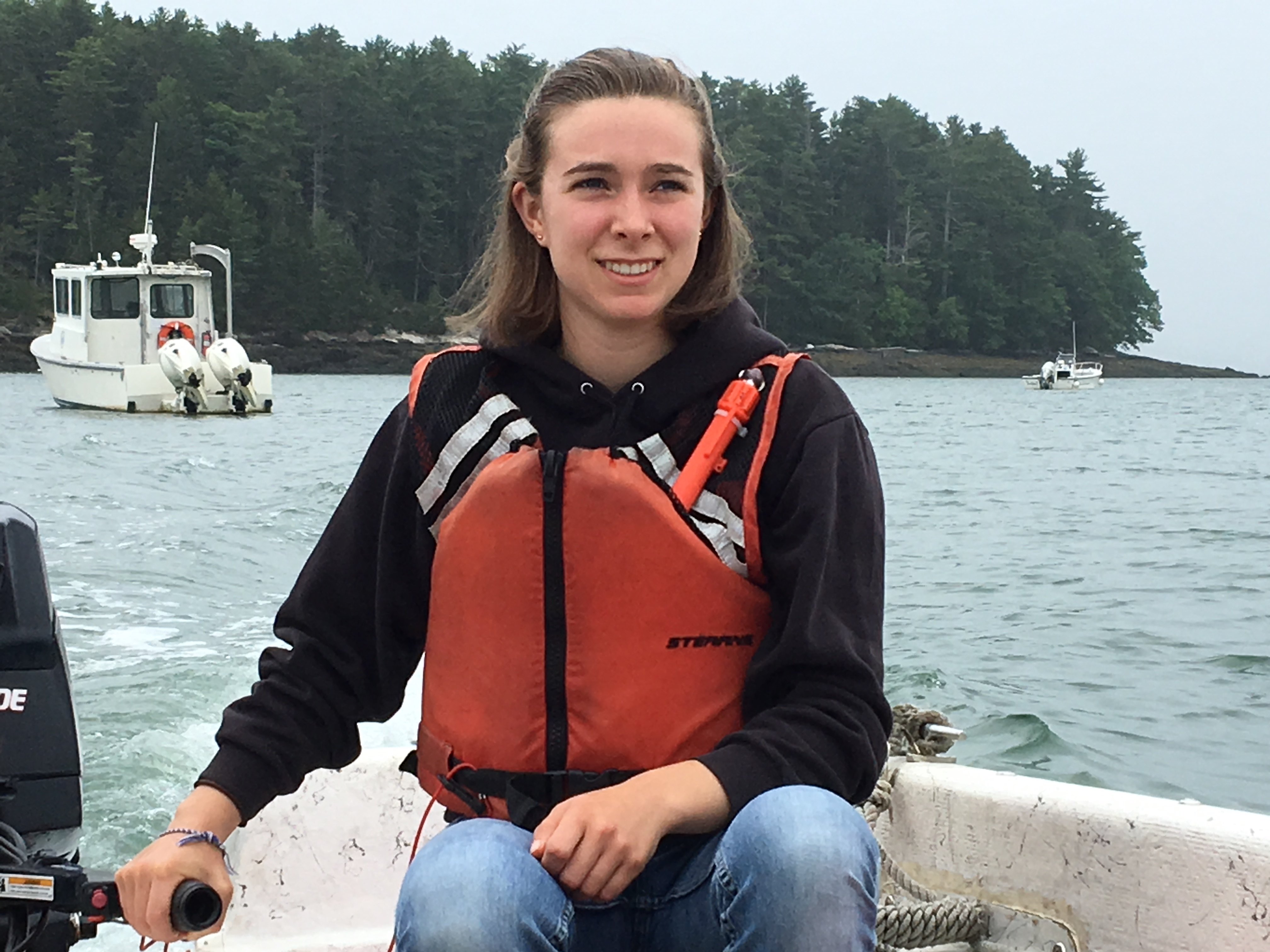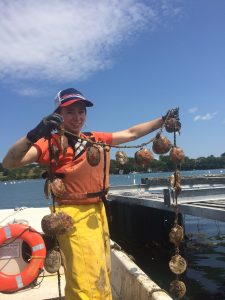
Diving into Aquaculture
Melissa Britsch shares her reflections on her recently completed Aquaculture Internship at the University of Maine’s Darling Marine Center in Walpole. Melissa’s internship and the research she conducted was supported by both state and federal government sources*, along with in-kind support from the Darling Marine Center.

I came to the Darling Marine Center (DMC) in June 2017 after graduating with a biology degree from Oregon State University. I’m a native Oregonian and I love everything about the Pacific Northwest: mountains, lakes, rivers, the ocean, and rain (sometimes). However, as I finished my undergraduate degree, I figured it would be good to experience something new.
I had never been to New England, nor had I eaten oysters, scallops, or lobster. This internship provided an excellent opportunity to learn about shellfish ecology and aquaculture, and to work with marine business people and other coastal community members.
My internship had two main elements:
First, I developed outreach materials about aquaculture in Maine and the Darling Marine Center’s contributions to research and development, technology transfer, and training. Developing these materials was more challenging than I anticipated because I knew little about shellfish and less about aquaculture when I arrived. That has changed, and I’ve gained valuable experience, thanks to my collaboration with DMC Director Heather Leslie and others at the DMC. The new aquaculture content can be found on the DMC website at https://dmc.umaine.edu/welcome/history/history-aquaculture/.
Second, I contributed to a collaborative project adapting Japanese scallop farming techniques to Maine, led by Maine Sea Grant and Cooperative Extension agent Dana Morse. My first task was to collect scallop spat (larvae) with a scallop farmer near Portland. I learned to sort and grade scallops, to identify several bivalve species, and that I get seasick. I also monitored the growth of juvenile and adult scallops for this and other experiments at the DMC. I had the opportunity to analyze some of these data, to investigate how depth and collector material impacts the magnitude of scallop recruitment. I presented my results at the SEA Fellows Symposium at the DMC last August.
I was able extend my time at the DMC from an initial three-month summer internship to a full six months. I continued working on a range of projects related to the DMC’s experimental aquaculture lease. I also had the opportunity to work with the UMaine undergraduates in residence at the DMC, as I served as the Residential Life Assistant for Semester by the Sea (SBS). SBS is a UMaine School of Marine Sciences program where students live at the DMC and are fully immersed in field and lab-intensive courses for the fall semester.
Maine is an exciting place to study the ocean. I’m incredibly grateful for this research opportunity and all that I learned in the last six months. This experience has proven to be integral to the next steps in my career – in the new year, I will start working for Maine Shellfish Developers, LLC, a marine aquaculture startup in residence at the DMC. And, this coming summer, I will start a dual Masters degree in Marine Biology and Marine Policy at UMaine.
*These sources included the US National Science Foundation, the US Department of Agriculture through the Northeast Sustainable Agriculture Research and Education Program, Maine EPSCoR through the SEANET Research Intensive Farm Program, and the Maine Economic Improvement Fund.
